You discovered our list of the best leadership books.
Leadership books are resources that teach leadership competencies, skills, and best practices. These works analyze which qualities great leaders share, and provide frameworks for building effective teams.
These books are similar to management books and books for CEOs, and include leadership books by women and mentorship books. These books help explore styles of leadership and develop leadership skills, executive skills and good leaders.
This article contains:
- the best leadership books for new leaders
- top leadership books
- good business leadership books
- executive leadership books
- the best books on leadership and management
So, here is the list!
List of leadership books
Here is a list of newer releases and older bestsellers that cover effective leadership.
1. Leaders Eat Last by Simon Sinek
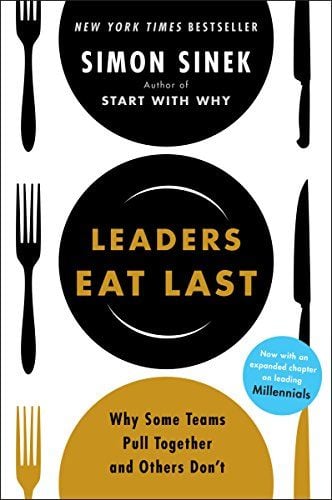
Like many great leadership books, Leaders Eat Last by Simon Sinek draws inspiration from military principles. The concept in question: high-ranking officers eat after their men, putting their reports’ needs before their own. Sinek makes the case that people-first leadership makes crews feel supported and respected. These feelings in turn compel employees to exhibit loyalty and exceed expectations. Sinek states that trust and psychological safety are the keys to excellence, illustrating this argument with multiple examples from different types of organizations around the world.
Notable Quote: “If your actions inspire others to dream more, learn more, do more and become more, you are a leader.”
Buy Leaders Eat Last by Simon Sinek.
2. Lean In: Women, Work, and the Will to Lead by Sheryl Sanderson

Lean In: Women, Work, and the Will to Lead by Facebook executive Sheryl Sanderson is one of the most popular leadership books for women. Inspired by personal experience and a TED Talk Sanderson gave in 2010, Lean In details the ways women hold back and miss career opportunities by being passive and polite. Sanderson encourages women to seek strong mentors, advocate for themselves, and assert their place in the business world. These actions can empower women to transform into leaders instead of merely accepting assigned roles.
Although the book is a few years old, the lessons are still relevant. Given the challenges to women’s careers a remote workforce presents, Lean In is worth a revisit.
Notable Quote: “In the future, there will be no female leaders. There will just be leaders.”
Buy Lean In.
Get our free team building toolbox
- icebreaker games
- bingo cards
- DIY guides
 by teams at FedEx, Amazon, Deloitte and 73,930+ others
by teams at FedEx, Amazon, Deloitte and 73,930+ others

3. The 21 Irrefutable Laws of Leadership: Follow Them and People Will Follow You by John C. Maxwell
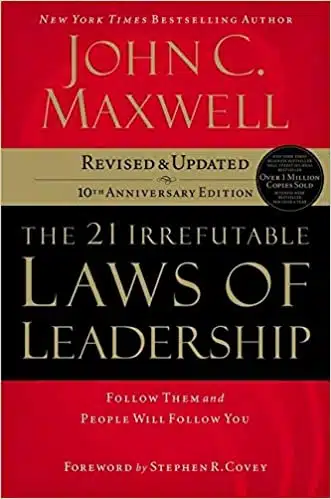
In The 21 Irrefutable Laws of Leadership, John C. Maxwell outlines clear guidelines for leaders to follow to maximize influence and ensure that employees achieve a common vision. The book shares wisdom such as “leadership develops daily, not in a day,” and “leaders understand that activity is not necessarily accomplishment.” The book explains each rule plainly and provides anecdotal examples, covering every aspect of leadership from attracting and forming teams to securing legacy by planning for succession.
Notable Quote: “You can’t move people to action unless you first move them with emotion…. The heart comes before the head.”
Buy The 21 Irrefutable Laws of Leadership.
4. Dare to Lead: Brave Work. Tough Conversations. Whole Hearts by Brené Brown
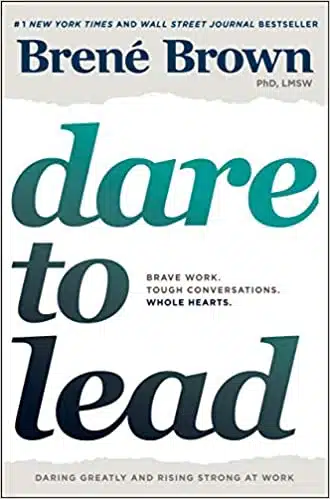
Dare to Lead shares lessons on the power of vulnerability and empathy in leadership. Renowned “courage and shame” researcher Brené Brown makes the case that leadership is not about status or control, but rather recognizing potential in individuals and ideas. Dare to Lead presents a guide to becoming a courageous and confident leader.
Notable Quote: “I define a leader as anyone who takes responsibility for finding the potential in people and processes, and who has the courage to develop that potential.”
Buy Dare to Lead.
5. The Mentor Leader: Secrets to Building People and Teams That Win Consistently by Tony Dungy
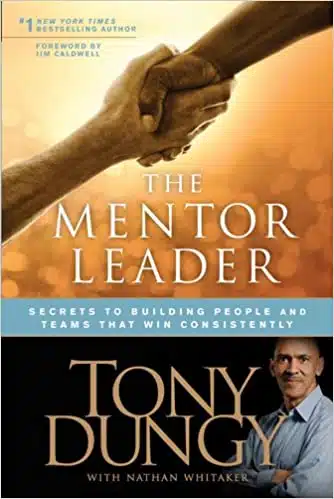
Tony Dungy is a celebrated former NFL coach, and this work is a valuable leadership book. The Mentor Leader explains how to elevate those around you towards success with one simple principle: “your only job is to help your players be better.” Dungy outlines the critical elements of mentor leadership, including introspection, altruistic mindset, and modeling values. The Mentor Leader demonstrates how to maximize team potential and drive individuals towards optimal performance.
Notable Quote: “Engage, educate, equip, encourage, empower, energize, and elevate. Those are the methods for maximizing the potential of any individual, team, organization, or institution for ultimate success and significance. Those are the methods of a mentor leader.”
6. Minority Leader: How to Build Your Future and Make Real Change by Stacey Abrahms
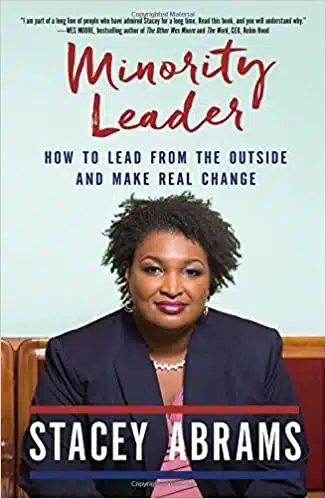
Representative Stacey Abrahms’ Minority Leader: How to Build Your Future and Make Real Change is one of the best leadership books around. The book gives instructions for leading as an outsider. For example, by using your unique perspective and resilience to enact impactful and lasting change even in the most seemingly rigid institutions. This work is a mix of memoir and instruction, guiding readers through steps to find passion and develop skills through topics like embracing otherness, owning opportunity, and overcoming failure.
Notable Quote: “Logic is a seductive excuse for setting low expectations.”
Buy Minority Leader.
7. The Hard Thing About Hard Things: Building a Business When There Are No Easy Answers by Ben Horowitz
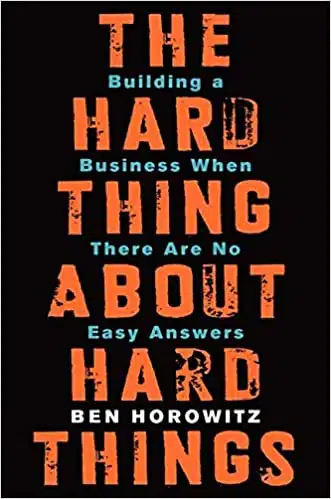
Becoming a leader may not mean assuming a pre-existing executive position within an established organization, but rather blazing an entirely new path and creating a company from scratch. In The Hard Thing About Hard Things, Ben Horowitz illustrates the realities of entrepreneurship, addressing how to build a business from the ground up, uncover unclear answers, and make tough calls and hard decisions with minimal guidance or backup.
Notable Quote: “Build a culture that rewards—not punishes—people for getting problems into the open where they can be solved.”
Buy The Hard Thing About Hard Things.
8. Primal Leadership: Unleashing the Power of Emotional Intelligence by Daniel Goleman, Richard E. Boyatzis, and Annie McKee
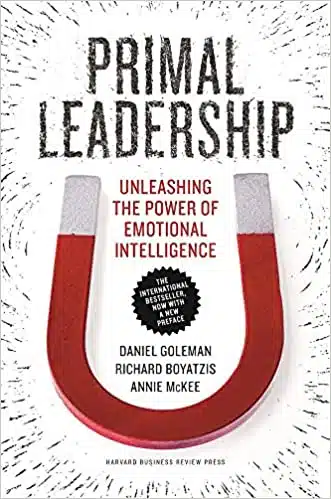
Emotional intelligence is one of the most underrated leadership skills. Leaders need to connect with their people to motivate and resonate with employees. Primal Leadership teaches professionals to identify and navigate feelings, empathize with employees, and build emotionally intelligent organizations. Emotionally intelligent leadership enables leaders to avoid misunderstandings and incorrect judgements, relate more closely to workers, and collaborate in true tandem with employees. The authors are professionals with years in the psychology and business consulting worlds, and illustrate their arguments through lived and observed experiences.
Notable Quote: “Not that leaders need to be overly “nice”; the emotional art of leadership includes pressing the reality of work demands without unduly upsetting people.”
Buy Primal Leadership.
9. Leadership: In Turbulent Times by Doris Kearns Goodwin
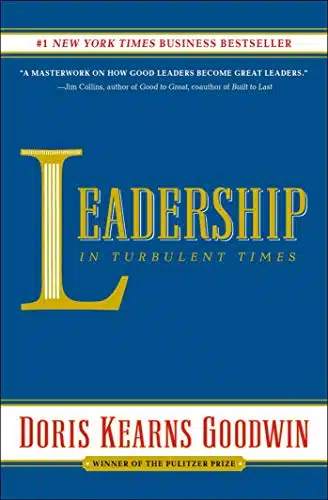
Leaders have a lot of pressure to lead their staff through times of turmoil. Perhaps the guidance leaders most need is on navigating a crisis, and reassurance that history’s greats encountered comparable challenges. Leadership: In Turbulent Times analyzes the obstacles faced by four American presidents: Abraham Lincoln, Theodore Roosevelt, Franklin Roosevelt, and Lyndon Johnson. Goodwin’s work examines the struggles, triumphs, and tactical approaches of each subject, holding each president up as an example of how to turn tragedy into achievement. This book is a masterclass in crisis management and transformational leadership, as well as a roadmap out of dark times.
Notable Quote: “Establish a clear purpose; challenge the team to work out details; traverse conventional departmental boundaries; set large short-term and long-term targets; create tangible success to generate accelerated growth and momentum.”
Buy Leadership: In Turbulent Times.
10. Extreme Ownership: How U.S. Navy SEALs Lead and Win by Jocko Willink and Leif Babin
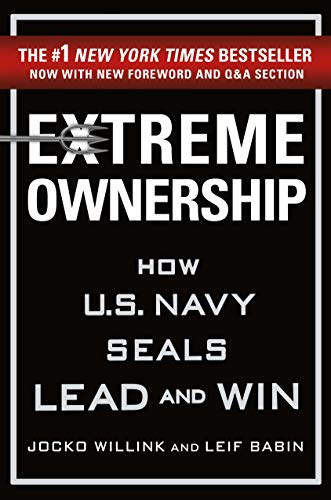
The extreme environments of Navy SEAL missions provide the ultimate platform for leadership. Former commanders Jocko Willink and Leif Babin apply battlefield wisdom to the business world, preaching the philosophy of admitting mistakes and owning failure as a means to earn trust and respect from followers. Only by overcoming ego and facing reality head-on can leaders gain the clarity and strength to act in difficult situations. The authors employ military discipline and combat strategy to break down traits and approaches necessary to effective leadership.
Notable Quote: “Implementing Extreme Ownership requires checking your ego and operating with a high degree of humility. Admitting mistakes, taking ownership, and developing a plan to overcome challenges are integral to any successful team.”
Buy Extreme Ownership.
11. How to Win Friends & Influence People by Dale Carnegie
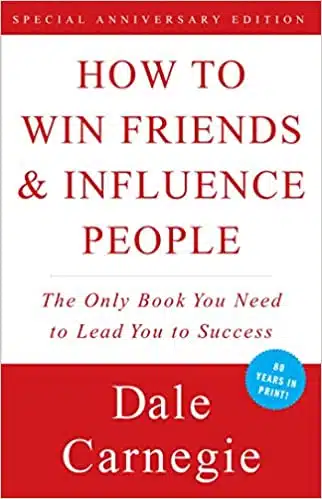
Dale Carnegie’s How to Win Friends & Influence People is one of the top leadership books of all time. Almost a century after the book’s initial publication, the sentiments within the pages still ring true. Carnegie’s guide to winning favor in the business world is a masterclass in soft skills. Leadership hinges upon resonating with people and winning followers. Carnegie breaks down the basics of persuasion, revealing how to sell others’ on your abilities, convince them of your vision, and assure folks that you have their best interests in mind. After all, one of the main components of effective influence is reading your audience’s feelings and motivations and reflecting that psychology and desire in your pitch.
Notable Quote: “Instead of condemning people, let’s try to understand them. Let’s try to figure out why they do what they do. That’s a lot more profitable and intriguing than criticism; and it breeds sympathy, tolerance and kindness. “To know all is to forgive all.”
Buy How to Win Friends & Influence People.
12. Conscious Leadership: Elevating Humanity Through Business by John Mackey, Steve Mcintosh, and Carter Phipps
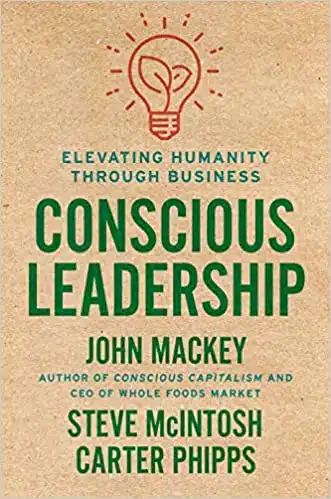
Conscious Leadership is a manifesto to moral business practice. Head author John Mackey founded Whole Foods, and his commitment to sustainability, integrity, and compassion flavor his leadership advice. Conscious Leadership champions purpose and value-based leadership, urging leaders to embody beliefs and serve as role models for their working and wider communities.
Notable Quote: “Whether they know it or not, every person and every organization has the potential to embrace, enact, and unify people around a higher purpose.”
Buy Conscious Leadership: Elevating Humanity Through Business.
13. Leadership: Theory and Practice by Peter G. Northouse
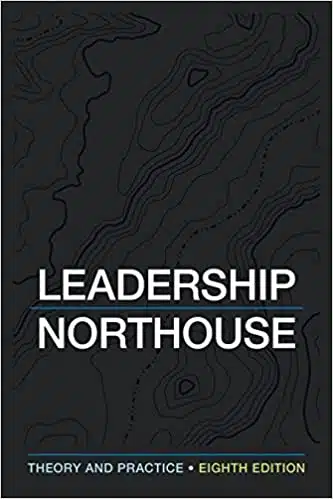
Peter G Northouse’s Leadership: Theory and Practice is one of the best leadership books for new leaders. The book serves as a comprehensive textbook for leaders, covering a wide range of academic concepts and evidence-based learnings related to the field of leadership. The book covers various traits, behaviors, approaches, theories, and styles of leadership, serving as a catch-all index and manual for managers looking to make a mark.
Notable Quote: “Leaders who use coercion are interested in their own goals and seldom are interested in the wants and needs of followers. Using coercion runs counter to working with followers to achieve a common goal.”
Buy Leadership: Theory and Practice.
14. How to Lead: Wisdom from the World’s Greatest CEOs, Founders, and Game Changers by David M. Rubenstein
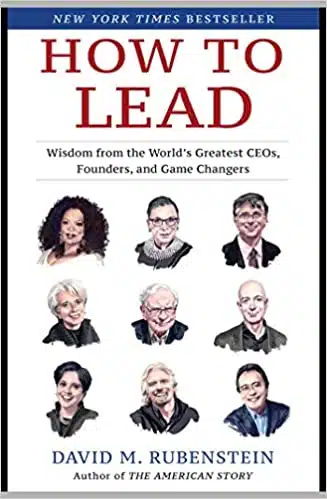
In How to Lead, David M. Rubenstein gathers insight, advice, and philosophies from trailblazing visionaries like Ruth Bader Ginsburg, Oprah Winfrey, Bill Gates, Warren Buffet and more. Each chapter has a unique perspective on leadership, offering multiple viewpoints on the secrets of success and the qualities of an effective leader. From these examples, readers can find inspiration and guidance to achieve their own visions. The content of How to Lead comes straight from Rubenstein’s own experience interviewing these industry leaders throughout the years.
Notable Quote: “A fair question might be, why should anyone really want to be a leader? First, a leader can create the type of change or results that will improve the lives of others. Second, a leader can motivate others to become leaders, and in turn improve others’ lives. And third, a leader can feel a sense of accomplishment and achievement that provides human fulfillment and happiness.”
Buy How to Lead.
Conclusion
The simple act of reading a book will not automatically transform an individual into a skilled leader. However, these books provide insight, guidelines, and actionable advice to build strong teams, earn respect, maximize potential, and leave a lasting impression on organizations.
Next, check out our lists of employee engagement books and books on diversity and inclusion, and these post with employee engagement best practices and leadership activities for work.
You may also be interested in executive team building activities, these ways to differentiate managers vs leaders, this guide to collaborative leadership and this one on servant leadership at work.
Plus, this guide to employee management styles and this list of the top leadership conferences.




